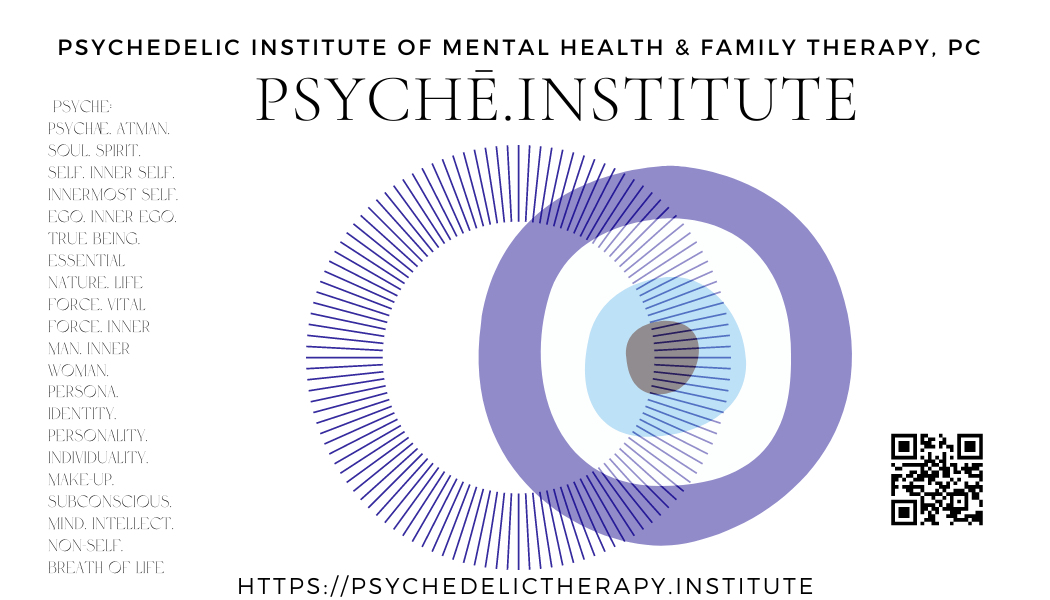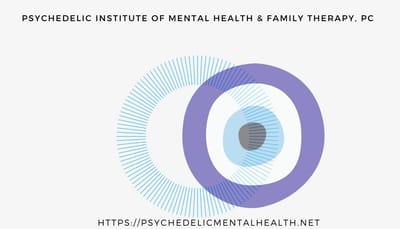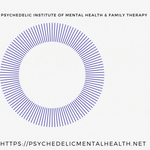Psychedelic Cognitive Behavioral Therapy (Preliminary Lit Review)
An evolving overview of cognitive behavioral therapy in psychedelic-assisted psychotherapy and ketamine psychedelic therapy.
A preliminary evolving overview of cognitive behavioral therapy in psychedelic-assisted psychotherapy and ketamine psychedelic therapy.
See further analysis and review
Psychedelic Cognitive Behavioral Therapy: On Ketamine, Context and Competencies in “Assisted-Psychotherapy”
There are many tools to help a psychotherapist help clients learn to speak the language of cognitive behavioral therapy, especially tools which may help facilitate a connection, including, but not limited to telehealth.

Preliminary Literature Review
CK2 negatively regulates the extinction of remote fear memory - PubMed
Cognitive behavioral therapy, rooted in exposure therapy, is currently the primary approach employed in the treatment of anxiety-related conditions, including post-traumatic stress disorder (PTSD). In laboratory settings, fear extinction in animals is a commonly employed technique to investigate exp …

"Cognitive behavioral therapy, rooted in exposure therapy, is currently the primary approach employed in the treatment of anxiety-related conditions, including post-traumatic stress disorder (PTSD)… These findings contribute to our understanding of the underlying mechanisms of remote cued fear extinction, thereby offering a theoretical foundation and identifying potential targets for the intervention and treatment of PTSD.
Psychedelics and Psychotherapy: Cognitive-Behavioral Approaches as Default - PubMed
The acute subjective effects of psychedelics are responsive to users’ expectations and surroundings (i.e., “set and setting”). Accordingly, a great deal of thought has gone into designing the psychosocial context of psychedelic administration in clinical settings. But what theoretical paradigms info …

"Our primary reasons for advocating for cognitive-behavioral approaches include, (1) they avoid issues of cultural insensitivity, (2) they make minimal speculative assumptions about the nature of the mind and reality, (3) they have the largest base of empirical support for their safety and effectiveness outside of psychedelic therapy. We then propose several concepts from cognitive-behavioral therapies such as CBT, DBT, and ACT that can usefully inform the preparation, session, and integration phases of psychedelic psychotherapy. Overall, while there are many sources from which psychedelic psychotherapy could draw, we argue that current gold-standard, evidence-based psychotherapeutic paradigms provide the best starting point in terms of safety and efficacy."
Learning to Let Go: A Cognitive-Behavioral Model of How Psychedelic Therapy Promotes Acceptance
The efficacy of psychedelic-assisted therapies for mental disorders has been attributed to the lasting change from experiential avoidance to acceptance that these treatments appear to facilitate. This article presents a conceptual model that specifies…

"This article presents a conceptual model that specifies potential psychological mechanisms underlying such change, and that shows substantial parallels between psychedelic therapy and cognitive behavioral therapy: We propose that in the carefully controlled context of psychedelic therapy as applied in contemporary clinical research, psychedelic-induced belief relaxation can increase motivation for acceptance via operant conditioning, thus engendering episodes of relatively avoidance-free exposure to greatly intensified private events. Under these unique learning conditions, relaxed avoidance-related beliefs can be exposed to corrective information and become revised accordingly, which may explain long-term increases in acceptance and corresponding reductions in psychopathology."
Psychedelic-Assisted Psychotherapy—A Systematic Review of Associated Psychological Interventions
Modern clinical research on psychedelics is generating interesting outcomes in a wide array of clinical conditions when psychedelic-assisted psychotherapy is delivered to appropriately screened participants and in controlled settings. Still, a number…

"In a way, psychedelics seem to open a window of flexibility (Kuypers et al., 2016) that may relax higher level priors and increase sensitivity to bottom-up information (Carhart-Harris et al., 2018b; Carhart-Harris and Friston, 2019). In the context of psychotherapy, this could imply that patients are offered a window of opportunity to become more effective in modifying rigid behaviors, thought patterns, and emotional reactions and that psychotherapy itself must be carefully honed to take advantage of this fertile state."
Cognitive Behavioral Therapy, Ketamine, and Combination Treatment for Depression: Impressions of Credibility in Participants with Self-Reported Depressive Symptoms (Earleywine, et al, 2020)
"Over 500 participants with depressive symptoms read descriptions of CBT, ketamine, and a treatment that combined the two. Descriptions included pros and cons of each approach. Participants found the combination treatment more credible than ketamine but no better than CBT alone. They rated the credibility of CBT alone significantly higher than ketamine alone. Participants with psychotherapy experience tended to view ketamine as less credible than those who did not report previous psychotherapy. Depression scores did not covary with credibility ratings for any treatment. Despite media coverage and Internet claims, potential clients are cautious about ketamine. These results suggest that providing descriptions of treatments might help reveal important information about their credibility to potential clients."
Cognitive Behavioral Therapy to Sustain the Antidepressant Effects of Ketamine in Treatment-Resistant Depression: A Randomized Clinical Trial - PubMed
This proof-of-concept study provides preliminary data indicating that CBT may sustain the antidepressant effects of ketamine in TRD. Further study and optimization of this treatment approach in well-powered clinical trials is recommended.

"This proof-of-concept study provides preliminary data indicating that CBT may sustain the antidepressant effects of ketamine in TRD."
Ketamine Assisted Psychotherapy: A Systematic Narrative Review of the Literature
Currently, ketamine is used in treating multiple pain, mental health, and substance abuse disorders due to rapid-acting analgesic and antidepressant effects. Its limited short-term durability has motivated research into the potential synergistic actions…

"The use of Ketamine Assisted Psychotherapy (KAP) can potentially fulfil the unmet clinical need for an effective treatment for multiple complex and often comorbid pain, psychological, and substance use disorders. Ketamine’s demonstrated ability to produce antidepressant and anxiolytic effects likely interacts with the processes involved in psychotherapy, ideally as a conduit for rapid-change, increasing treatment engagement and adherence, building the therapeutic alliance, and lowering defensiveness by providing reprieves from distressing symptomology while inducing transpersonal experiences at higher doses. Continued engagement in psychotherapy after ketamine administration may prolong the often-transient effects of ketamine and allow for the integration of psychological insights into everyday functioning. While at present there is no standard approach to the application of KAP, it is important to prepare and support the patient during ketamine administration and to offer follow-up psychotherapy sessions to maintain positive effects and delay or eliminate relapse. As KAP research continues to evolve, a focus on increasing the duration of positive effects may lead to effective interventions and maintenance programs, improving KAP such that it becomes an effective, long-lasting treatment for complex, resistant, and chronic conditions for people living with pain, mental health, and substance use disorders."
(And a nice section on dosing escalation / exploration / titration:
"The theorized effectiveness of ketamine in psychotherapy is based on: (a) increased access to traumatic memory via enhanced synaptic connectivity; (b) decreased central sensitization via downregulation of the prefrontal cortex, and (c) enhanced extinction of previously paired pain-related memories.21 Therefore, KAP can utilize a dosage escalation strategy to achieve different levels of trance, increasing to full out-of-body experiences.23")
Ketamine Assisted Psychotherapy (KAP): Patient Demographics, Clinical Data and Outcomes in Three Large Practices Administering Ketamine with Psychotherapy - PubMed
Currently, ketamine is the only legal psychedelic medicine available to mental health providers for the treatment of emotional suffering. Over the past several years, ketamine has come into psychiatric use as an intervention for treatment resistant depression (TRD), administered intravenously withou …

"Currently, ketamine is the only legal psychedelic medicine available to mental health providers for the treatment of emotional suffering. Over the past several years, ketamine has come into psychiatric use as an intervention for treatment resistant depression (TRD), administered intravenously without a psychotherapeutic component. In these settings, ketamine's psychedelic effects are viewed as undesirable "side effects." In contrast, we believe ketamine can benefit patients with a wide variety of diagnoses when administered with psychotherapy and using its psychedelic properties without need for intravenous (IV) access. Its proven safety over decades of use makes it ideal for office and supervised at-home use. The unique experience that ketamine facilitates with its biological, experiential, and psychological impacts has been tailored to optimize office-based treatment evolving into a method that we call Ketamine Assisted Psychotherapy (KAP). This article is the first to explore KAP within an analytical framework examining three distinct practices that use similar methods. Here, we present demographic and outcome data from 235 patients. Our findings suggest that KAP is an effective method for decreasing depression and anxiety in a private practice setting, especially for older patients and those with severe symptom burden."
Ketamine Psychedelic Therapist Palm Springs
Psychedelic-assisted psychotherapy offers support beyond the medicine. Palm Springs, Joshua Tree and via telehealth in CA, NY, VT, UT

The Psychedelic Institute of Mental Health & Family Therapy offers cognitive behavioral therapy designed for psychedelic-assisted psychotherapy and ketamine psychedelic therapy for residents of CA, NY, UT and VT.





